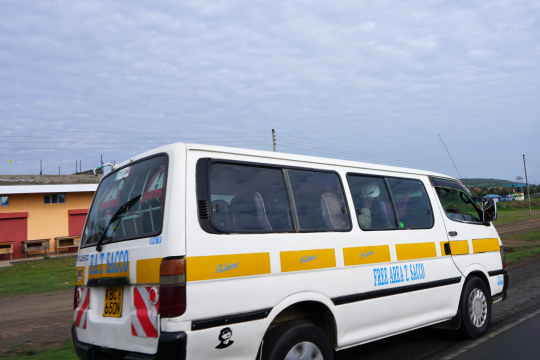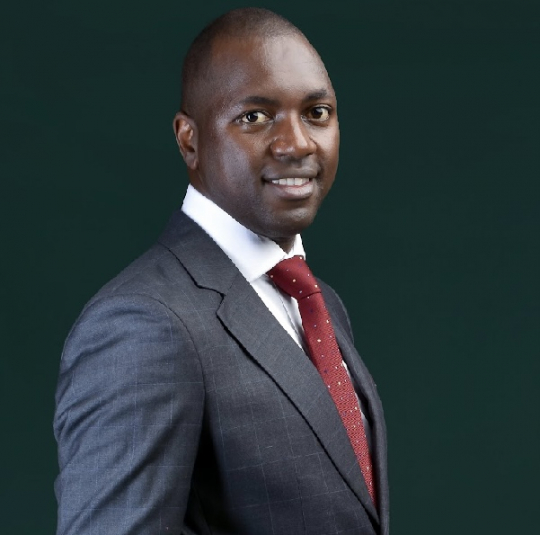Nairobi will be the epicenter of policy discussions at the EfD Policy Day 2024 on October 2. The event, held in conjunction with EfD’s Annual Meeting, will bring together policymakers, researchers, and practitioners to explore Policy Instruments for a Just and Inclusive Transition in the Energy, Transport, and Industry Sectors in East Africa.
“The issues that we will address at the Policy Day are crucial, not only at a local and regional level but also globally,” says Kenneth Kigundu, EfD Researcher who is part of the organizing team and will participate in a panel discussion.
“The aim is to present well-grounded policy recommendations, enhance networking and collaboration, and form partnerships with local and international organizations,” he says.
High-level keynote speakers
The Policy Day will kick off with remarks from Kenya’s Principal Secretary of the State Department of Energy, Mr. Alex Kamau Wachira, the University of Nairobi’s Director of Research and Extension, Professor Justus Munyoki, and EfD Kenya’s Center Director, Professor Richard Mulwa. Their introductions will set the stage for a day filled with critical discussions and innovative ideas.
Keynote speakers will include, among others, Liilnna Teji from Duke University, who will address the complexities of a Just Energy Transition. Her insights are expected to provide a foundational understanding for the day’s sessions.
Interactive sessions highlight three themes
A standout feature of this year’s Policy Day is the introduction of interactive group sessions. Civil servants from Ethiopia, Kenya, Rwanda, Tanzania, and Uganda participating in the Inclusive Green Economy in Practice program (IGE) will discuss with researchers and stakeholders.
These sessions will tackle three pressing themes:
The first theme is Energy Access and Equity. It addresses the challenges of providing clean and affordable energy while reducing the dependency on dirty fuels, such as firewood, charcoal, and fossil fuels. That dependency has serious impacts on health, the environment, and social factors.
The second theme is Sustainable and Inclusive Transport Systems: With urbanization accelerating, the need for green transport initiatives and sustainable infrastructure investments increases.
A challenge to leave no one behind
“The introduction of new technologies may lead to new jobs in one sector but unemployment in another.,” notes Kenneth Kigundu.
For instance, a new public transportation system in Kenya leads to unemployment among the operators of the conventional “Matatus” if no proper actions are taken. The Matatu Owners Association, among many other stakeholders, is participating in the discussions to ensure that different perspectives are taken into account.
The third theme is Energy Efficiency in the Industrial Sector. The participants will explore policies and technologies that enhance energy efficiency in manufacturing and industry.
Kenya has taken steps for energy efficiency
Kenya’s progress in energy efficiency is showcased through initiatives like the Energy Management Award. The Kenya Association of Manufacturers in collaboration with the Ministry of Energy and Petroleum Development in collaboration with Kenya conducts energy audits annually to help industrial firms reduce energy consumption, cost, and carbon emissions and to present the Energy Management Award to one outstanding company.
This year the civil servants who attend this meeting (IGE fellows) will conduct a field visit to the Izuzu East Africa car manufacturers who won the award last year.
Bridging the gaps between research and policy
The results from these discussions will be presented to a panel of experts from Ethiopia, Kenya, Rwanda, Tanzania, and Uganda. The panel will synthesize the findings and propose actionable recommendations.
The EfD Policy Day also aims to strengthen relationships among researchers, policymakers, and practitioners.
“This event is designed to foster meaningful dialogue and collaboration,” Kenneth Kigundu stated.
“By bringing together diverse stakeholders, we aim to address gaps and find practical solutions.”
Addressing global challenges
The event also aligns with global environmental goals, addressing climate change impacts on livelihoods and emphasizing the need for inclusive and effective policies. “We’re not just looking at regional solutions; we’re contributing to a global conversation on sustainability,” said Kenneth Kigundu.
The participation of international organizations, such as the UN and the World Bank, underscores the global relevance of the discussions.
By: Petra Hansson

